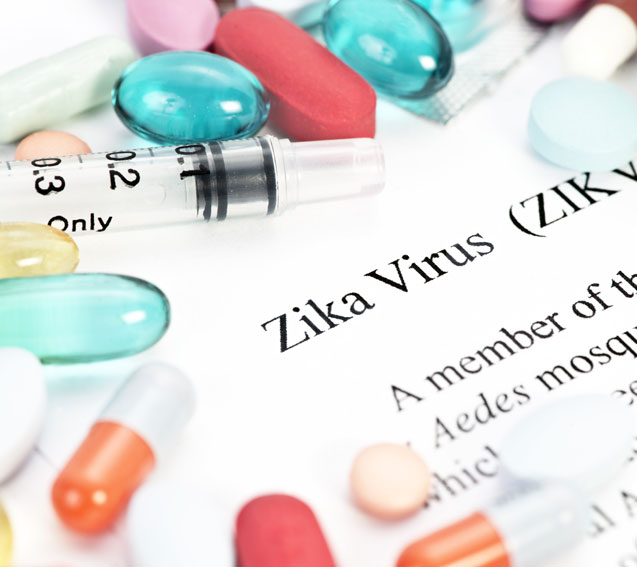If you or a loved one has been injured by a doctor or hospital, Call the Medical Malpractice Crisis Resource Line for Immediate Help >
Free Consultation. Call Now. (516) 394-4200
(516) 394-4200

You’ve no doubt heard about the Zika virus. It’s been in the news a lot lately, and with good reason.
We’re currently in the midst of an outbreak, and the World Health Organization declared it a Public Health Emergency of International Concern in early 2016.
The current epidemic is far less contained than previous ones. The first report came out of Brazil in May 2015, but since then, the virus has spread to over 30 countries including most of South and Central America, Fiji, Cambodia, Thailand, Singapore, and Vietnam.
And yes, it has also reached the United States and Canada. According to the CDC, there are 3176 documented cases in the US – most of them travel-associated, but 43 locally acquired in Florida. Our neighbors to the North have witnessed lower numbers, with fewer than 300 travel-associated cases across the country.
The Zika Virus
First identified in Uganda in 1947, the Zika virus is usually transmitted by the bite of an infected Aedes mosquito.
It can also be transferred from an infected mother to her unborn child, and from sexual activity with an infected partner.
At the moment, there is no treatment or vaccine available for the virus.
Thankfully, Zika is relatively mild for most individuals, and it typically requires little treatment other than rest, drinking plenty of fluids, and treating any pain or fever in the usual ways (doctors recommend Tylenol).
But for some, it can be much more complicated. New research has shown a conclusive link between the virus and two rare but serious conditions: microcephaly and Guillain-Barré syndrome.
Microcephaly
This is a condition where a child is born with a small head, or in some cases, where the head stops growing shortly after birth. Depending on the severity of the condition, it can lead to seizures, hearing loss, vision problems, intellectual and movement disabilities, and feeding issues. There is no treatment or cure.
Guillain-Barré Syndrome
GBS is a condition where an individual’s immune system attacks part of the peripheral nervous system, typically the nerves that control muscle movement and those that transmit touch, temperature, and pain impulses. It can lead to paralysis of varying degree in the later stages. With treatment, most people recover completely from the condition, with no lingering side effects.
Zika Virus Symptoms
The Zika virus has an incubation period of roughly 3-12 days once infected, and symptoms can last from only a couple of days to up to a week.
One of the biggest challenges in containing the virus and estimating the number of cases is the fact that only 20-25% of infected individuals will manifest any symptoms at all. Most people become infected and carry the virus without knowing it.
For those that do display, the usual symptoms include:
The Zika rash – a raised red rash that is most often uncomfortable and itchy – will present in about 90% of people displaying the symptom markers. Joint pain may manifest in wrists, knees, or ankles, and many people describe a pain behind their eyes.
If you’ve recently travelled to a country with documented cases of Zika and are displaying any of these symptoms, it is important to visit your doctor immediately. Diagnosis can only be confirmed via a lab test.
Protecting Yourself
If you are pregnant or trying to get pregnant, it would be wise to avoid locations with a Zika travel warning in place.
If you must visit or live in an active Zika zone, take precautions to protect yourself against mosquito bites. Use insect repellents, sleep with windows and doors closed, use a bednet, eliminate standing water around your home (these are popular mosquito breeding grounds), and wear long-sleeve shirts and pants whenever possible.
The Aedes mosquito is most active in the early morning and late afternoon, so be extra vigilant at these times of day.
The Zika virus is relatively benign for most people, but it can lead to serious complications. Be careful, plan ahead, and take precautions. As with so much in life, better safe than sorry.
No. Our injury cases are handled on a contingent retainer. You pay nothing upfront, and we recover attorney’s fees only if your litigation is successful. We don’t bill by the hour. You don’t need to worry about running up a large attorney’s bill before you see any recovery for your injuries.
Yes. Our firm is dedicated to creating a strong relationship with our clients, beginning with keeping your information and consultation confidential.
Each case we encounter is carefully screened and evidence scrutinized to make sure the claim is meritorious and may be successful at trial. We will perform an investigation, and then our partners make a final decision on whether to take on a case.